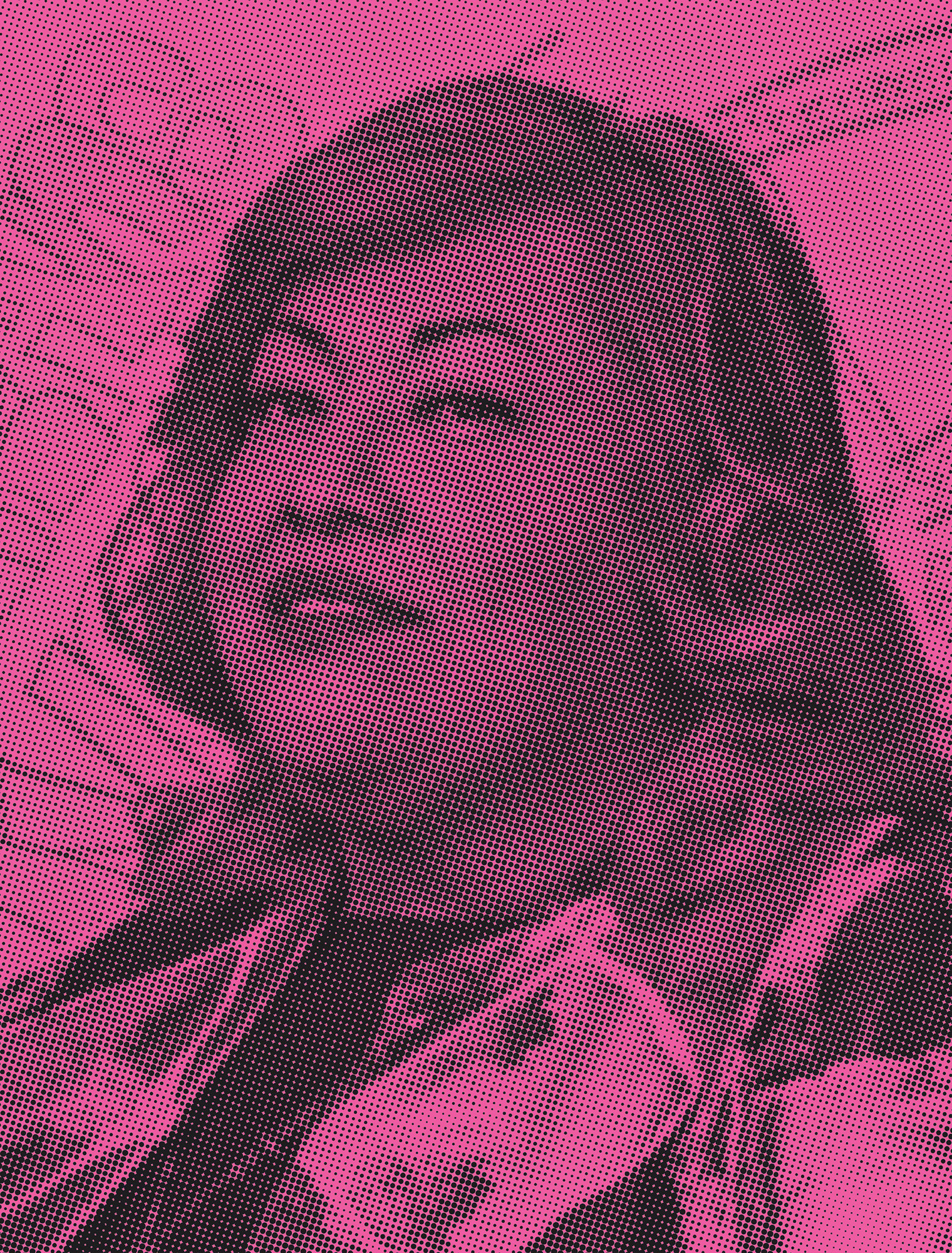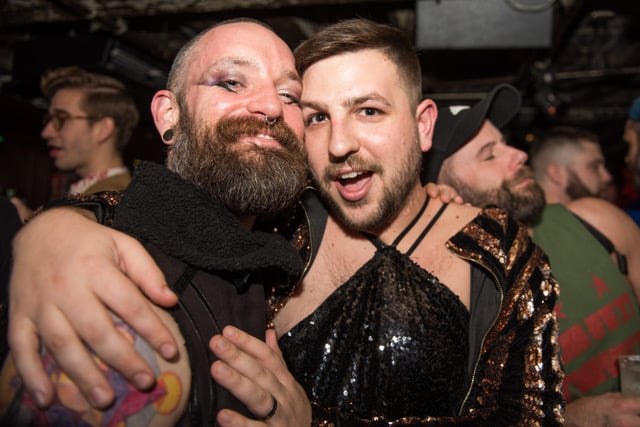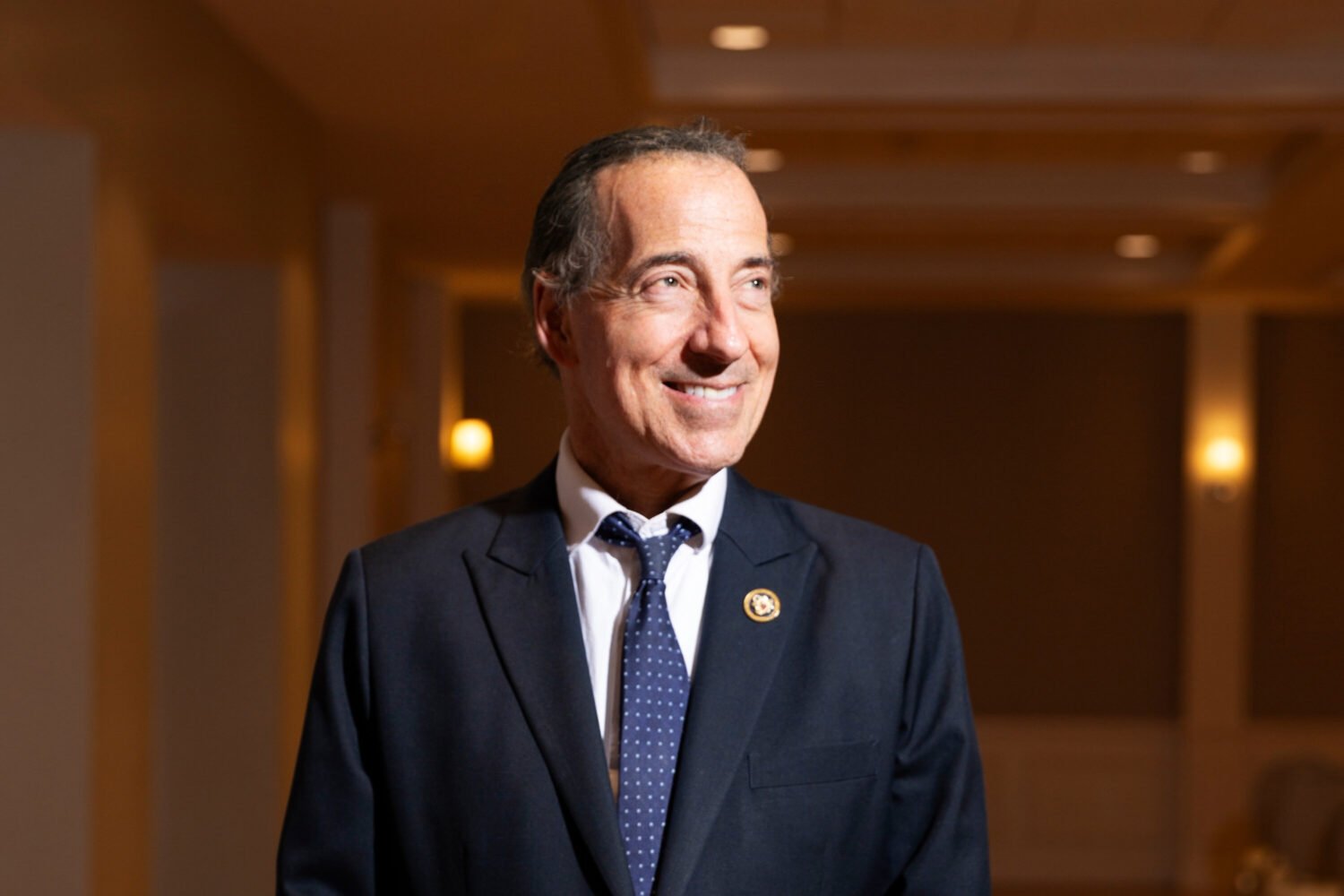When Denzel Mackall went to work at Casa Ruby’s shelter for LGBTQ+ youth on a sunny morning in September 2021, he didn’t expect it to be his last day. Sure, the shelter had bounced from location to location around DC. And yes, there were rumors about more serious problems, including an investigation into the nonprofit’s operations by city officials.
Still, Mackall wasn’t too worried. Not with Ruby Corado in charge. More than Casa Ruby’s namesake and founder, she was its animating force. A fierce and scrappy trans immigrant from El Salvador, Corado had survived everything from homelessness to an HIV-positive diagnosis to become a Washington institution—a celebrated activist who had built Casa Ruby into a $4.2 million organization offering housing and social services to the homeless queer kids, trans sex workers, and others whom Corado called her “family.”
Like many in that community, Mackall, 30, had not been accepted by his biological family. For him, Casa Ruby was a “safe space,” and Corado an inspiration. “She was very relatable,” he says. “Her coming from being homeless—it was like, ‘If she can do it, I can do it.’ ”
It was midafternoon, Mackall says, when Corado showed up unexpectedly at the shelter, at the time located on R Street. Carrying one of her Louis Vuitton bags, she gathered the staff and announced that the shelter’s primary funder, the DC Department of Human Services, had canceled its support. The facility was closing, effective immediately.
Mackall and his coworkers no longer had jobs. The dozen or so residents living onsite needed to find other places to sleep that night. Staffers spent the next few hours calling other shelters, desperately searching for beds. Everyone was crying. “It was full panic,” Mackall says.
Panic has since given way to scandal. The Office of the Attorney General for DC has filed a civil complaint accusing Corado of serious mismanagement and funneling Casa Ruby funds to herself. An ongoing investigation by Casa Ruby’s court-appointed receiver, the Wanda Alston Foundation, estimates the amount to be as high as $2 million. Casa Ruby has closed all of its programs, including transitional homes for LGBTQ+ youth and programs to aid hate-crime victims and LGBTQ+ asylum seekers. Corado, 52, has decamped to El Salvador. In a March court filing responding to the civil complaint, she denied all allegations of wrongdoing; speaking with Washingtonian over a series of Zoom interviews that same month, Corado blamed city government for destroying her organization.
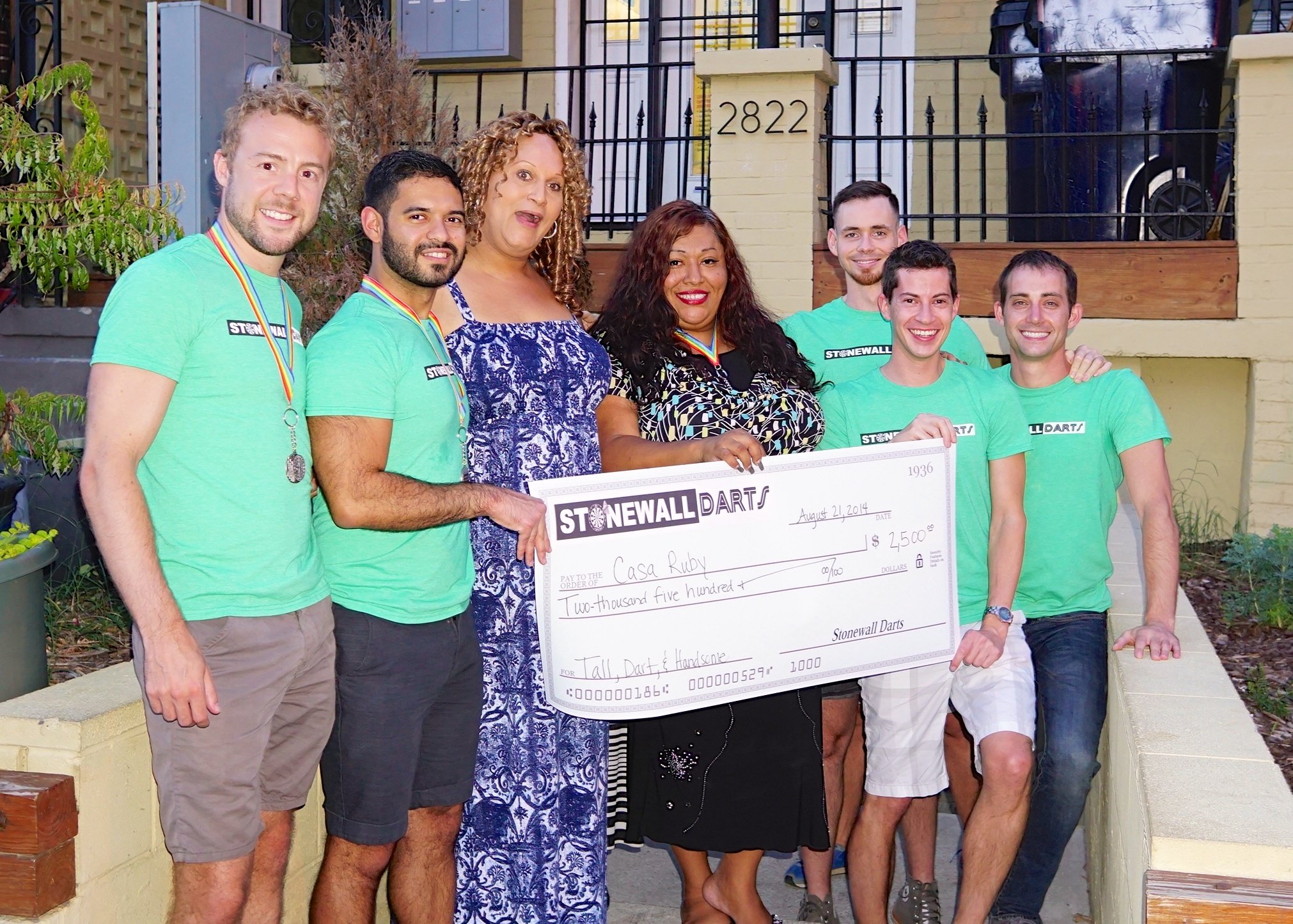
Meanwhile, the people who worked for and relied on Casa Ruby have been left to wonder how something that had inspired so much hope could go so terribly wrong. “Have you seen Inventing Anna on Netflix?” asks former Casa Ruby employee Tania Cordova, referring to the streaming series about convicted con artist Anna “Delvey” Sorokin, who posed as a German heiress and swindled more than $200,000. “That’s Ruby. We joke about ‘Inventing Ruby.’ ”
Recalling her friendship with Corado, longtime trans activist Holly Goldmann tears up—and smiles. The two first met in the early 2000s, when Corado was a client at the hair salon where Goldmann worked.
“When I would meet a trans woman before [I met Ruby], I was like, ‘Oh, look how pretty, how passable,’ and that was what I’d aspired to be,” Goldmann says. Corado inspired her to focus her energy on social injustice, and they testified together before the DC Council about issues such as hate crimes against trans women. “It was like, ‘Wait, we can do something about this.’ ”
In 2012, Corado invited Goldmann to the Georgia Avenue apartment she was renting, a place she called Casa Ruby. The location, Goldmann says, was unremarkable: a single floor of a rowhouse, with a kitchen and a small living room. But the people were a different story—LGBTQ+ sex workers and drug addicts, with no other family or place to go. “People were eating, and they were off the streets,” Goldmann says. “They were warm.”
The legend of Ruby Corado has been told many times, in profiles and fundraising appeals and at award ceremonies, much of it by Corado herself. It begins in the 1980s, when Corado—then a teenager identifying as male—came to Washington to escape violence in El Salvador. She claims she worked as a live-in maid for a family that smuggled undocumented immigrants and that she ran away when the father tried to rape her. Corado subsequently got involved in DC’s vibrant drag scene, came to understand herself as a woman, and in 2004 was part of an activist group that successfully lobbied the city to expand the DC Human Rights Act to include “gender identity and expression” as a protected trait.
Have you seen Inventing Anna on Netflix?” she asks, referring to the series about a con artist. “We joke about ‘Inventing Ruby’.
Four years later, Corado has said in interviews, she was physically and sexually assaulted by a man she was dating. She says she fell into depression and addiction, became homeless, and felt suicidal. She received therapy from the city’s rape crisis center and in 2012 put money from Social Security disability back payments toward renting the first floor of the Georgia Avenue rowhouse.
Corado has said she takes her last name from her mother, whom she has described as a loving, hard-working woman who would buy diapers for kids whose parents couldn’t afford them. With Casa Ruby, Corado tried to follow in her footsteps, ministering to the young people who washed up at her door. She bought them gift cards, food, and hair treatments. She set them up with therapy, job training, and new clothes.
More than that, Corado offered acceptance. “She was—cool, you know?” Mackall says. “Fun to be around. She loved me. Always gave me compliments: ‘Oh, wow, you’re so together.’ She was a good person.”
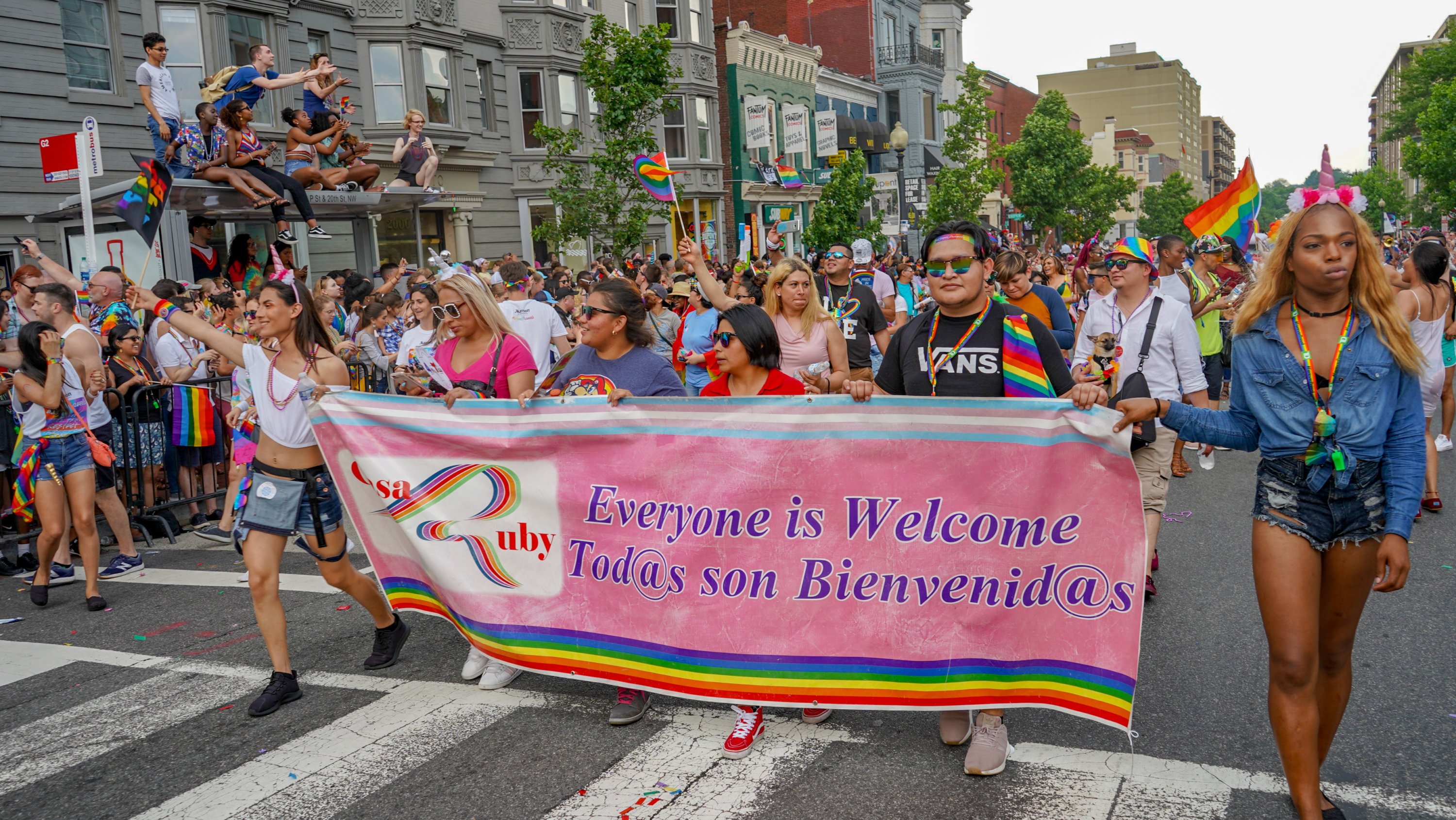
During Casa Ruby’s early years, 30 to 40 percent of the homeless people in the District ages 18 to 24 were LGBTQ+, a number that’s about the same today. Back then, the city had several transitional shelters tailored to LGBTQ+ young people’s specific needs, which can go unnoticed or be deliberately ignored at shelters that are gender-segregated or run by religious organizations. However, DC had no emergency, low-barrier beds for kids in immediate need.
Casa Ruby filled that gap, and the city quickly came to see Corado as an important partner. She rented out the rest of the rowhouse, then opened a 50-bed low-barrier shelter and additional group homes around the city. She worked with an area church to create a Southeast location. Along with the DC Department of Health, she ran HIV prevention and management programs for young people and trans women. In 2019, Corado traveled to Texas and drove back a van of 15 LGBTQ+ asylum seekers from Central America, whom she placed in group homes and connected with immigration lawyers. That same year, Casa Ruby had 126 employees and was receiving nearly $3.5 million in grants, with more than $2.4 million of that from government sources.
Corado’s clout was growing, too. In October 2014, then-mayor Vincent Gray walked her down the aisle at her wedding. A month later, she was working for incoming mayor Muriel Bowser’s transition team. Corado was a sought-after host at Pride events and the speed-dial source for local journalists covering trans issues. She received a series of awards, including a 2019 Washingtonian of the Year honor from this magazine.
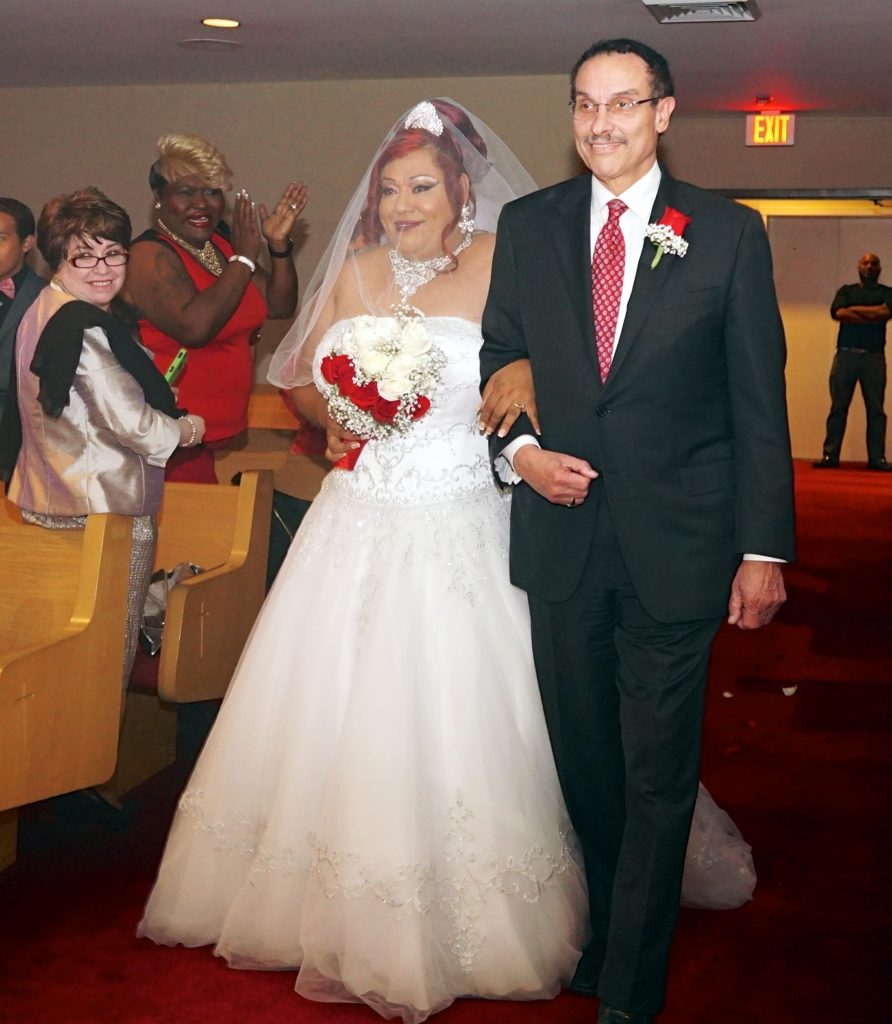
In January 2020, Corado attended the celebratory luncheon, wearing a red dress and a bright floral jacket. Goldmann was also there. Then working as Casa Ruby’s director of external affairs, she was deeply moved. “[Ruby] really made it,” Goldmann says. “And that’s what she wanted to do.”
Ten months after that luncheon, Amiyah Taylor moved into Casa Ruby’s flagship shelter, a Georgia Avenue house with a living room painted like a Pride flag. Taylor is a nonbinary person and, in terms of gender, felt the house was “really affirming.”
It was also a mess. The kitchen was overrun with rats. The electrical system was busted, with exposed wires sticking out of the walls. Employees complained about getting paid late. Taylor claims they were able to hear other residents conducting sex work on the premises and that employees were using drugs in the bathrooms.
According to interviews with nearly two dozen former Casa Ruby employees, residents, and community members, Corado’s management left much to be desired. “[She] had a stellar team, but she developed a culture of madness,” says Charmaine Eccles, a trans advocate who served as director of programs at Casa Ruby until 2020. “If things were not going insane, it didn’t feel right to her.”
Since 2018, at least six landlords have taken legal action against Corado and Casa Ruby, alleging that the nonprofit failed to pay rent and utility charges and caused serious property damage that Corado failed to repair. One landlord claimed Corado emailed them, “I’m not paying you another dime” after a scheduled rent increase. The landlord of 7530 Georgia Avenue, where Amiyah Taylor lived, filed an action against Corado in 2021 for more than a million dollars in unpaid rent, expenses, and fees. Of the six cases, one was settled, one was dismissed, one is ongoing, and three ended with Casa Ruby being evicted. “I think [Corado is] a shyster,” says Angelique Best, landlord of a property at 1122 Columbia Road, who engaged in a lengthy legal battle with Corado that ended in a settlement.
She developed a culture of madness. If things were not going insane, it didn’t feel right to her.
Internally, Corado—who according to the DC attorney general had sole control of Casa Ruby’s bank accounts and PayPal account—was paying staffers both poorly and inconsistently. When Taylor Lianne Chandler, then a sign-language interpreter and volunteer for trans-rights organizations, took a job doing public relations for Casa Ruby in early 2018, she was thrilled to be working for a woman she viewed as a personal hero. But Chandler walked out that December after a loud altercation with Corado, fed up by not receiving her paychecks for as many as ten weeks in a row.
In 2020, Corado hired Cordova, an activist then running an organization in Chicago to help trans immigrants find housing, to lead Casa Ruby’s program for LGBTQ+ asylum seekers. When Cordova arrived in DC and inspected the apartments where the asylum seekers were meant to live, she was appalled: no stoves, no beds, only a few couches. When she asked Corado for help, she felt dismissed: “She didn’t care, she was like, ‘Well, that’s what we have and that’s it.’ ” Cordova ended up paying for furnishings out of her own pocket. Rikki Nathanson, a prominent trans activist from Zimbabwe and director of Casa Ruby’s housing program, says Corado would threaten to fire her for having employees work overtime shifts to cover for staff shortages; Corado, she says, didn’t want to pay overtime. “A lot of people were afraid of her,” Nathanson says. According to Eccles—a two-time survivor of gun violence—Corado once got upset with Eccles at work and yelled, “ ‘Bitches like you are the reason Black trans women in DC get murdered!’ ” (Corado told Washingtonian she never said that to Eccles.)
All the while, staff were noticing that Corado’s lifestyle appeared to be getting fancier: what looked like a brand-new luxury sedan; handbags and shoes from Louis Vuitton. In 2014, Corado paid herself $31,895 to run Casa Ruby. By 2020, that figure had ballooned to $260,416—making her the organization’s only employee earning an annual salary exceeding six figures. Meanwhile, longtime Casa Ruby employee Paty Hernández says, most of the organization’s 113 employees did not receive health or other benefits.
Around the time Chandler left Casa Ruby, Corado closed on a 4,000-square-foot, four-bedroom house in Upper Marlboro for $610,990. She moved in with her partner, her many cats—people who knew Corado estimate between 14 and 30—and two Pomeranians. Friends who saw the place were stunned. “Oh, my God, that house was beautiful,” says an old friend and former roommate of Corado’s who asked not to be named. “She [had] almost ten TVs, a lot of clothes, perfume, bags—everything.”
Shortly after Casa Ruby’s R Street shelter abruptly shut down in 2021, Corado appeared on Facebook Live. Announcing her resignation, she criticized the city for giving money to Covenant House, a nonprofit that had just opened a new shelter for LGBTQ+ youth; accused DHS of retaliating against her for filing an administrative complaint against one of its employees; and said that people criticizing her for earning too much money “want to use me as a distraction.”
“The reality is that I am not the cause of all of this,” Corado said. “It’s called transphobia. In their eyes, trans people are only good to be sex workers.”
Casa Ruby limped along for several months on a few final grants and donations, with a dwindling number of employees. By the end, most were working without pay, and in July 2022 the organization shut down completely. A Washington Post article published shortly thereafter detailed a pattern of financial mismanagement by Corado—who sold her Maryland house in January 2022, stopped communicating with her former staff in June, and by August had moved to El Salvador. “It wasn’t until the Washington Post story came out that we understood why she was so rich,” says Hernández, speaking through an interpreter.
In August, the attorney general’s office filed a civil complaint seeking to freeze Casa Ruby’s financial accounts and prevent Corado from making withdrawals. The complaint accused Corado of transferring money from Casa Ruby’s accounts into her private accounts or withdrawing funds without explanation, including $500,000 for a new Casa Ruby location in El Salvador and $200,000 from a PPP grant. A DC Superior Court judge granted the freeze request and appointed the Wanda Alston Foundation, a District organization serving homeless and at-risk LGBTQ+ youth, to act as a receiver for Casa Ruby—looking into the organization’s books and operations to figure out what, if anything, could be salvaged. “I was shocked at just how bad the situation was,” says Wanda Alston Foundation executive director June Crenshaw.
Citing more than $2 million in debts and “no meaningful assets,” the foundation recommended the organization be dissolved. The foundation subsequently filed a civil complaint on behalf of Casa Ruby against Corado and the nonprofit’s eight board members, alleging that Corado had funneled out more than $800,000 and that the board had failed to hold meetings, take notes, or otherwise provide oversight or governance. (The judge overseeing the case has since dismissed the complaint for all but one of the board members, and the Wanda Alston Foundation plans to appeal that decision.)
Within the world of people and organizations working in the same areas as Casa Ruby, multiple sources tell Washingtonian, there had been concern for years about problems at the nonprofit. Black queer activists in particular were skeptical of Corado. They saw what Crenshaw describes as a “class system” among Casa Ruby employees that favored Latinx staffers over Black ones; felt Corado frequently used Black trans women as fundraising props; and were particularly incensed in the summer of 2021 when the gay bar Nellie’s hired Corado as a diversity consultant after a security guard assaulted a Black woman.
Records obtained by Washingtonian indicate that city government also had known Casa Ruby was seriously troubled. In August 2021, a DHS investigator told a department administrator via email that over the previous four years, the department had received approximately 337 complaints about Casa Ruby, many from current and former employees—an atypically high number for an organization of Casa Ruby’s size. (One of those came from Chandler, who in May 2021 filed a report alleging that Corado had misused grant money.) The investigator also cited 27 separate investigations into Casa Ruby for “allegations ranging from sexual assault of minors to fraud.” (Washingtonian could not find evidence that any of the sexual assault allegations resulted in criminal charges. In the email, the investigator wrote that “many of the allegations against Casa Ruby, concerning mistreatment of minors, face roadblocks due to disappearance of those minors from the program after an investigation is underway.”)
DHS did not respond to repeated interview requests. Crenshaw believes that city government may have been reluctant to take quicker action because “they wanted for there to be a place for the really vulnerable members of the community to go, partly because the city wanted to advertise that they were meeting a need that in other places was being unmet. That was a good story, a good narrative for them, and they didn’t want to lose that.”
Through my laptop screen, Ruby Corado was crying. “Do you know how much love I gave these kids?” she said. “I truly believed that if I love them, like no one had loved them before, that I could fix them. That I could really, really be that mother that they never had. ”
We spoke in early March, over three conversations spanning four hours. Corado was calling from El Salvador, where she says she has lived since August 2022. During that time, she has participated in remote court hearings, given a handful of brief media interviews, and been spotted in the VIP line at a Bad Bunny concert wearing a light-up bunny-ears headband. She has had little contact with former friends and Casa Ruby employees.
I’d prepared a long list of questions, mostly about the allegations against Corado. However, I struggled to get a word in as she deluged me with her stream of consciousness—saying she was “in a process of recovery” from stress-related health issues, touting her record of activism, describing the pain of losing her career and public standing, speaking movingly about the passion she’d brought to her work and the emotional toll it had taken on her, and insisting repeatedly that she was innocent of all accusations against her.
When Corado did answer my questions, it was mostly to deny things. Frequently, she immediately attacked whoever she thought was responsible for a specific allegation—even though I never mentioned anyone by name. One perceived accuser was a racist, she said. Another slept with clients. A third did drugs on the job. Corado told an extremely salacious and unverifiable story about an aide to a former DC Council member. Again and again, she lashed out at city government and “the system” for what she described as unmerited, xenophobic, and transphobic attacks on her and Casa Ruby.
Corado did give a few specific responses. She argued that her compensation as executive director was fair, given the time-intensive, emotionally demanding nature of the job. She said she paid for her pricey bags and shoes with her own money—not by using Casa Ruby funds. Asked about allegations that sexual assault of minors had taken place at Casa Ruby, she said she did not tolerate abuse and had not been made aware of any alleged instances. She also pointed out that the organization had served only adults ages 18 to 24. She said that all of the financial transactions under investigation had been approved by Casa Ruby’s board, which also had approved the creation of Casa Ruby El Salvador. (When I asked for proof of its existence and work, she directed me to its Facebook page.) The reason Corado had withdrawn so much money, she said, was to create a “self-sustaining” source of income that would make the nonprofit less dependent on government agencies—entities that Corado views as biased and impossible to work with. She offered few details on what exactly that source of income would be.
As we talked, Corado’s Pomeranian yapped regularly. At one point, she used her phone camera to give me a virtual tour of the house she claimed to be living in, which she said belonged to her father. I saw concrete floors with broken tiles and glassless windows opening to a bare courtyard filled with rubble, scaffolding, and a few potted plants. “When I hear people say, ‘She took a million dollars,’ I’m like, ‘I [would] live differently,’ ” she said.
After the tour, Corado spoke again about how much she loved her Casa Ruby family. I asked what she would say if she could speak with them now—the kids who lost their homes, the employees who lost their jobs—and Corado teared up. “I’m sorry,” she said, her voice breaking. “I’m sorry. I couldn’t fight because unfortunately, as much as I did, I couldn’t be the only one. And I know that the love that I felt was real.”
Then Corado’s voice strengthened. “But this is where I had to be honest with myself,” she said. “And just like everybody else, I have the right, you know, to have a good life.”
On the night Casa Ruby’s R Street shelter closed, Denzel Mackall says, Corado promised him and other staffers she would find them new jobs. She then lined everyone up for a group photo, which she later posted on a GoFundMe page asking for donations—ultimately raising more than $180,000 that, according to the DC attorney general, never made it to Casa Ruby or its employees. Corado placed herself at the center of the shot. “ ‘Look sad,’ ” Mackall recalls her saying.
Not long after Mackall lost his job, he moved to Atlanta, in search of a new start. He’s been applying for jobs, chasing his dream of becoming a caseworker for young Black and Brown LGBTQ+ people. During a phone conversation, he told me he never actually saw the group photo from that night. I emailed it to him, and the line went silent.
“My whole world kinda fell apart in one day,” he finally said.
Everyone in the picture, Mackall told me, was his family. Now he’s lost them. Some former Casa Ruby employees are still struggling to replace their lost jobs. Some have shot credit and likely will never see thousands of dollars they’re owed for work done years ago. Some suffer from PTSD-like symptoms and swear they’ll never do community work again. Many of the people I spoke with fear that Corado has damaged the credibility of a community that’s already marginalized, vulnerable, and increasingly under political and cultural attack. “There were already trust issues with giving large sums of money to trans women, especially trans women of color,” Chandler says. “[Corado has] systematically torn all of that down with her actions and her greed.”
Meanwhile, former Casa Ruby employees say, some residents have ended up back on the street and, in some cases, relapsing into substance abuse. The organization largely served young people who had been rejected by their natal families. To suffer the same from Corado, the surrogate mother who had affirmed and loved them, seems unimaginably cruel. “If I take those kids under my wing and I’m going to be responsible and all of a sudden I decide that I’m going to kick them out, of course a lot of the trauma is going to be triggered,” Cordova says.
Like Mackall, Cordova is still struggling to make sense of what happened. One of the last times she saw Corado was in November 2021, when Corado dropped by Casa Ruby’s transitional home for LGBTQ+ asylum seekers. Inside Corado’s car, Cordova says, were crates containing 15 cats. “She’s like, ‘Can you take care of them for a couple days? I’m just in the process of moving,’ ” Cordova says. As weeks passed without word from Corado, Cordova kept one, a black-and-white tuxedo cat she named Camila. Others were adopted by members of the Casa Ruby community. That December, Cordova surrendered eight remaining abandoned animals to a local rescue group. Corado never came back for them.
Correction: A caption in a previous version of this story misidentified an image as being from a GoFundMe used to solicit donations for Casa Ruby. The caption and image have been removed.
This article appears in the June 2023 issue of Washingtonian.
